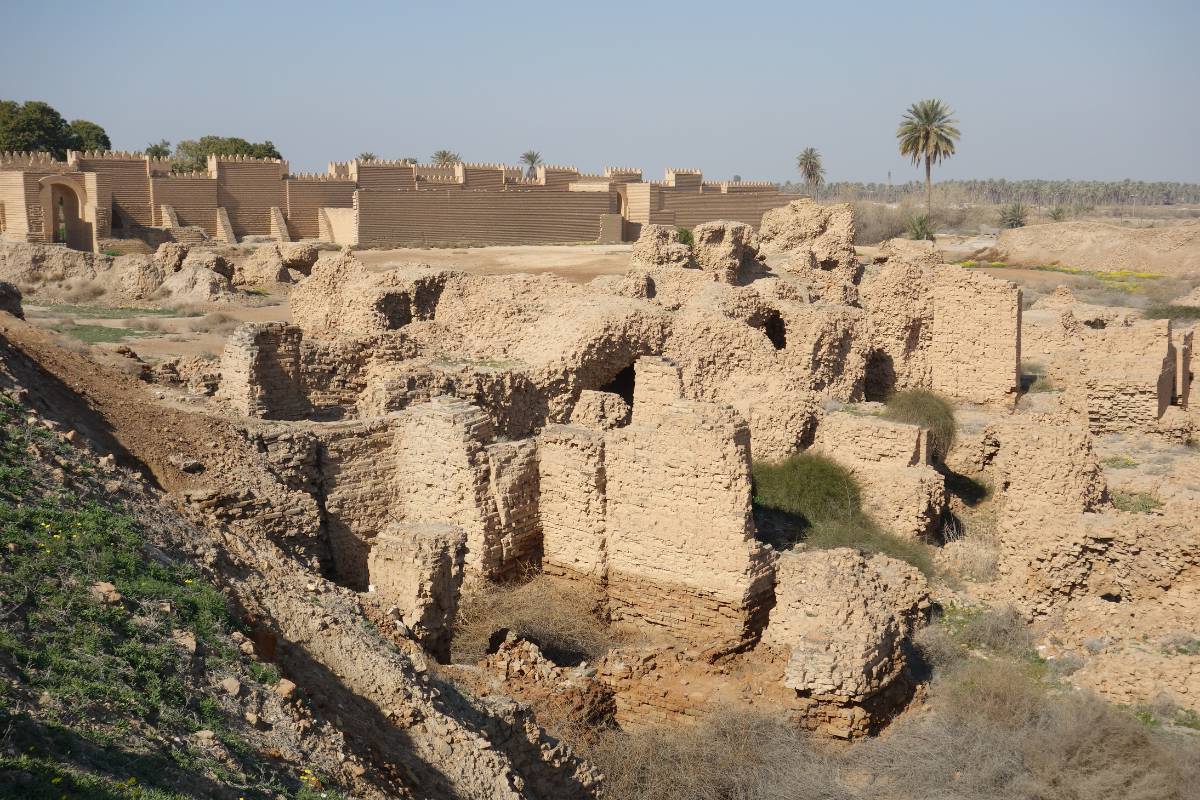
What made the Babylonian Empire so remarkable? The Babylonian Empire, an ancient powerhouse, left an indelible mark on history. From its awe-inspiring architecture to groundbreaking legal systems, this civilization was ahead of its time. Imagine a society where the famous Hanging Gardens might have existed, one of the Seven Wonders of the Ancient World. Babylon wasn't just about grand structures; it was a hub of knowledge, culture, and innovation. Hammurabi's Code, one of the earliest and most complete written legal codes, originated here. This empire's influence stretched far and wide, shaping future civilizations. Ready to dive into 28 fascinating facts about this legendary empire? Let's get started!
The Rise of the Babylonian Empire
The Babylonian Empire, one of the most influential ancient civilizations, left a lasting impact on history. Let's explore some fascinating facts about this powerful empire.
- Babylon, the capital city, was founded around 2300 BCE by the Akkadian-speaking people of Mesopotamia.
- The empire reached its peak under the rule of King Hammurabi, who reigned from 1792 to 1750 BCE.
- Hammurabi is best known for creating the Code of Hammurabi, one of the earliest and most complete written legal codes.
- The Babylonian Empire was located in present-day Iraq, along the Euphrates River.
- The Hanging Gardens of Babylon, one of the Seven Wonders of the Ancient World, were said to be built by King Nebuchadnezzar II for his wife.
Cultural Achievements and Innovations
Babylonians were pioneers in various fields, contributing significantly to culture, science, and technology.
- They developed one of the first writing systems, known as cuneiform, which used wedge-shaped symbols.
- Babylonian astronomers made significant advancements, including the creation of a lunar calendar.
- They were among the first to use a base-60 number system, which is why we have 60 seconds in a minute and 60 minutes in an hour.
- The Babylonians practiced advanced mathematics, including algebra and geometry.
- They built impressive architectural structures, such as ziggurats, which were massive terraced pyramids.
Religion and Mythology
Religion played a central role in Babylonian society, influencing their daily lives and governance.
- The Babylonians worshipped a pantheon of gods, with Marduk being the chief deity.
- The Epic of Gilgamesh, one of the oldest known literary works, originated in Babylonian mythology.
- They believed in an afterlife where the dead would journey to the underworld, known as the "Land of No Return."
- Religious festivals, such as the Akitu festival, were important events that celebrated the New Year and honored the gods.
- Temples, called ziggurats, were built to honor their gods and served as the center of religious activities.
The Fall of the Babylonian Empire
Despite its grandeur, the Babylonian Empire eventually fell, giving way to new powers.
- The empire was conquered by the Hittites in 1595 BCE, leading to a period of decline.
- It experienced a resurgence under the Neo-Babylonian Empire, which lasted from 626 to 539 BCE.
- King Nebuchadnezzar II, who reigned from 605 to 562 BCE, was a prominent ruler during this period.
- The Neo-Babylonian Empire fell to the Persian Empire under Cyrus the Great in 539 BCE.
- After its fall, Babylon continued to be an important cultural and economic center under Persian rule.
Legacy of the Babylonian Empire
The influence of the Babylonian Empire can still be seen in various aspects of modern society.
- The Code of Hammurabi influenced later legal systems, including Roman law.
- Babylonian advancements in astronomy laid the groundwork for future astronomical studies.
- Their mathematical concepts, such as the base-60 system, are still used in timekeeping and geometry.
- The Epic of Gilgamesh has been translated into many languages and continues to be studied for its literary and historical significance.
- Babylonian art and architecture have inspired countless generations of artists and architects.
Interesting Tidbits
Here are some lesser-known yet intriguing facts about the Babylonian Empire.
- The Babylonians were skilled in medicine, using various herbs and treatments for ailments.
- They had a complex system of irrigation that allowed them to cultivate crops in the arid Mesopotamian landscape.
- Babylonian merchants engaged in extensive trade with neighboring regions, including Egypt, India, and the Mediterranean.
The Babylonian Empire's contributions to law, science, and culture have left an indelible mark on human history.
Final Glimpse at Babylonian Wonders
Babylonian Empire's rich history and culture left a lasting impact on the world. From their advanced mathematics and astronomy to the grandeur of the Hanging Gardens, Babylonians were true pioneers. Their legal system, exemplified by the Code of Hammurabi, set the stage for modern justice. The ziggurats and intricate cuneiform writing highlight their architectural and literary achievements. Understanding these facts offers a glimpse into a civilization that shaped human progress.
Babylon's influence can still be seen in today's society, reminding us of the importance of innovation and cultural heritage. Whether you're a history buff or just curious, these facts about the Babylonian Empire provide a fascinating look into a world that continues to inspire. Dive into the past, and you'll find that the echoes of Babylon still resonate in our modern world.
Was this page helpful?
Our commitment to delivering trustworthy and engaging content is at the heart of what we do. Each fact on our site is contributed by real users like you, bringing a wealth of diverse insights and information. To ensure the highest standards of accuracy and reliability, our dedicated editors meticulously review each submission. This process guarantees that the facts we share are not only fascinating but also credible. Trust in our commitment to quality and authenticity as you explore and learn with us.


